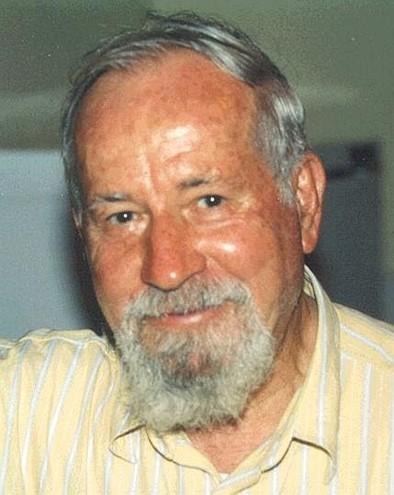Daniel Comboni
Comboni Missionaries
Institutional area
Other links
Newsletter
In Pace Christi
Maran Romano
Romano was born in Selvazzano, province of Padua, on 1st August 1927. He grew up in a very large peasant family (with 9 children) of deep faith. “It was at home that I learned to pray and work hard”, is the refrain that he would repeat throughout his life. After finishing primary school, he attended the diocesan seminary of Padua as an external student. Meanwhile, he begins to feel the desire to become a missionary. Starting the third year of high school, he entered the Comboni seminary in Padua. In 1939 he was in the Comboni seminary in Brescia, for his fourth year of secondary school, but he remained there for only 4 months: his studies were particularly difficult for him, and he was invited to return to his family. Romano, however, did not give up. In May 1940, he wrote to the superior of the seminary in Padua asking to be accepted as a coadjutor brother. On 1st October 1942, the novitiate began in Venegono. On 7th October 1944, he took his first religious vows.
Europe was still at war and nobody could leave for the missions. In June 1947, after some assignments in Italy, Brother Romano a letter assigning him to the Sudan.
On 7th October 1950, he took his final vows. In 1957 he was assigned to Juba mission in the Bahr-el-Gebel circumscription to assist in the procure. In 1960, he became a teacher of catechism and religious instruction in schools in the area. In March 1961 he was in Tali mission. After the expulsion of the missionaries from Sudan, he returned to the General Curia in Verona, Italy, as a general administration assistant. In March 1965, when the Curia moved to Rome, Brother Romano also moved to the capital, where he remained until the end of June 1966.
In the meantime, he received a new appointment: the Gulu Region, which included all the missions of Uganda. Before the end of the year, he was already working in the Kampala community, helping to run the house. We have little else to say as his presence was requested in the north of the country, at the Aliwang mission, not far from Lira, to take care of the house and the parish.
In 1969 he was in the mission of Aboke, in the recently founded diocese of Lira, where new parishes were emerging that needed his presence. In 1971 he worked in Iceme, a newly opened mission where the necessary structures needed to be built. In 1973 he was called to Teboke, another new mission to be started. In 1976 he moved to West Nile, to the Maracha mission in the diocese of Arua; while there, he also took care of the nearby Olovo mission, where maintenance work was urgently needed.
In the first months of 1979, Brother Romano was in Italy on holiday. When he returned, he was offered a temporary transfer to the new mission of Obongi, on the White Nile, 100 km north-east of Arua, where Father Silvio Serri was alone. Brother Romano knew well what that meant – starting again almost from scratch - but he willingly accepted.
In Obongi, Brother Romano experienced the tragic death of Father Serri, which he recounts in detail in a long letter to the new Superior General, Father Salvatore Calvia, dated 14th April 1979, at the end of which he expresses his desire to remain in Odongi: “I have no intention to retire from my job, despite the shock I suffered and which was truly terrible... It will be a more comforting testimony for our Christians, who will be able to see that, despite the suffering – in spite of everyone and everything – we want to demonstrate our constancy for the divine mandate, which must always be carried out until the end.” Romano took some time off to recover, but, in the meantime, he continued to be available for any service whatever. In 1980 he moved to Lodonga and then to Maracha and Minakulu for a few months. Wherever he was, he often had to go to the Ombaci procurator’s office to collect material or repair the car... Travelling was not always peaceful... he had to watch out for checkpoints. Once, he was beaten by soldiers and taken to prison. He was released only after several hours, disturbed and almost traumatised. Nevertheless, the next day he got into his vehicle and drove back to the mission.
After a period of holidays in Italy, he was assigned to Malawi-Zambia. In October 1984, he was already in the mission of Saint Mathias Mulumba, in Chipata, Zambia, which had opened a few months earlier. There was a lot of building up to be done, in fact. His comment was: "Grist to my mill!”. In July 1987, he went to reopen Chikowa mission; in July 1989 he was called to Malawi, to Mthawira parish mission, as house manager. He remained there until the end of 1994, when he was sent to the Lunzu Craft Training Center in the diocese of Blantyre which, also thanks to him, would become Comboni Technical School.
He spent the first six months of 2003 in Verona for medical treatment. Once he recovered, he returned to Malawi. He was now 80 years old, but knew well how to organise and guide local workers magnificently. In 2008, he was called to the provincial headquarters in Lilongwe, but after three months he was forced to return to Italy for health reasons.
He then went to Brescia for treatment, staying there until July 2009, when he retired to the Mother House in Verona. In June 2015, he entered the ‘Brother Alfredo Fiorini’ Centre in Castel d’Azzano (Verona), his last stop where he celebrated his 100th birthday.
Brother Romano died peacefully in his sleep on 11th April 2024, a few hours after receiving Holy Communion. (Father Franco Moretti, mccj)

